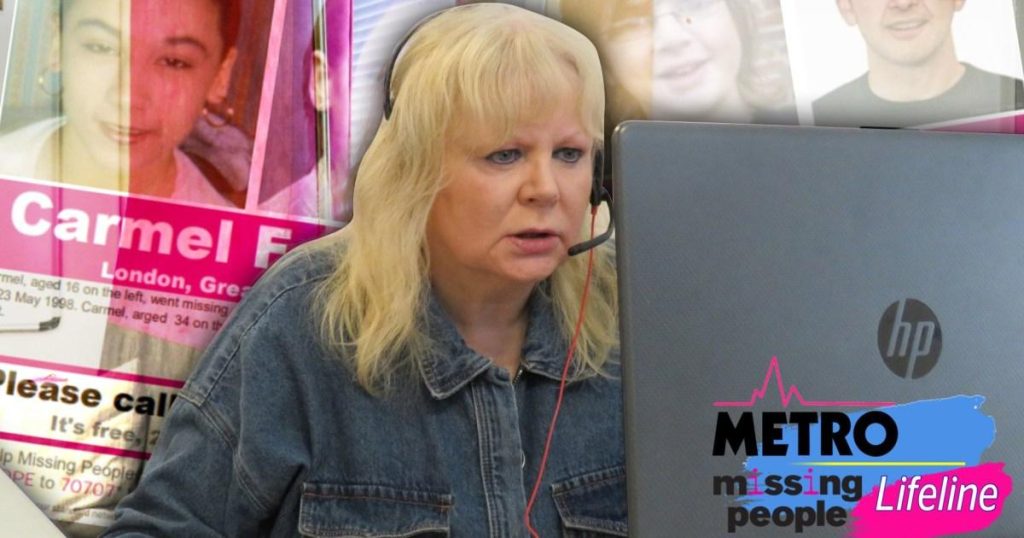The Heart of Missing People: A Lifeline for the Lost and Their Families
Missing People, a UK charity founded in 1986, stands as a beacon of hope for the 170,000 individuals reported missing each year, and for the families left grappling with the agonizing uncertainty of their loved ones’ whereabouts. The organization’s CEO, Jo Youle, surrounded by photographs of missing individuals in her office, carries the weight of their stories, a constant reminder of the emotional turmoil faced by those left behind. These faces, not of friends or family, but of strangers, symbolize the charity’s unwavering commitment to giving a voice to the voiceless and providing crucial support to those searching for answers.
The charity’s helpline serves as a vital lifeline, offering a compassionate ear and practical assistance to both those considering leaving and those desperately searching for someone they’ve lost. Helplines Manager Martha McBrier, with her soothing Scottish accent, fields calls from distraught parents, runaway teenagers, and individuals struggling with mental health crises. Each call represents a unique story of vulnerability and despair, highlighting the multifaceted nature of disappearances. Missing People’s response is swift and comprehensive, mobilizing a network of support across the region where the missing person was last seen, alerting postmen, park wardens, and community members to be on the lookout. The charity’s TextSafe service, in partnership with Samaritans, provides an additional layer of support for those expressing suicidal thoughts. While many disappearances end in joyful reunions, some calls bring news of hospitalizations or messages of gratitude for simply being heard.
The search for missing persons often extends beyond the charity’s immediate network, engaging the public through appeals and social media campaigns. While public involvement can be instrumental in locating missing individuals, it can also bring unwanted attention and speculation, particularly in high-profile cases. The tragic case of Richard Okorogheye and the intense scrutiny surrounding Nicola Bulley’s disappearance underscore the delicate balance between utilizing public assistance and protecting the privacy and emotional well-being of the families involved. Jo Youle emphasizes the importance of responsible online engagement, encouraging the public to become "Digital Search Heroes" by sharing appeals without resorting to speculation or personal attacks.
Behind the scenes, Missing People’s dedicated staff works tirelessly to reunite families separated by circumstance, distance, or time. Kirsty Hillman, known affectionately as "the real Davina McCall," heads the Lost Contact desk, reconnecting relatives who have lost touch due to addiction, homelessness, divorce, or other life-altering events. Her work brings stories of heartwarming reunions, such as the Christmas reunion of two brothers separated for decades and the reconnection of a mother and son who were able to spend lockdown together. These reunions demonstrate the profound impact of Missing People’s work, extending beyond the immediate crisis of disappearance to heal fractured relationships and offer a second chance at connection.
The emotional toll of a missing loved one can be overwhelming, and Missing People offers comprehensive support to navigate the complexities of grief, uncertainty, and the legal processes that may follow. Belen Pavani-Sattin provides a compassionate and non-judgmental ear to families, offering practical assistance with inquests, funeral arrangements, and ongoing emotional support. Her work underscores the charity’s commitment to holistic care, recognizing that the impact of a disappearance extends far beyond the initial search. A wall adorned with thank-you cards from families serves as a testament to the deep personal connections forged between the Missing People team and those they serve.
The work of Missing People relies not only on its dedicated staff but also on the invaluable contributions of volunteers like Sarah Allan, who provides ongoing support to families of missing individuals. Her stories reveal the enduring impact of a disappearance, the constant hope for return, and the profound sadness of milestones missed. The charity’s "Family Tree," adorned with leaves bearing the names of missing loved ones, serves as a poignant reminder of the ongoing search for answers and the enduring love that fuels it. Missing People’s commitment extends beyond the immediate crisis, providing ongoing support and advocacy for families grappling with the long-term emotional and practical challenges of a missing loved one.
Missing People’s work is fueled by a deep belief in the power of hope and the importance of human connection. The charity’s "Messages of Hope" pinboard, filled with words of encouragement and support from the community, embodies this spirit of resilience and compassion. Kate Graham, head of communications, reflects on the profound impact of her work, acknowledging the emotional challenges while emphasizing the unwavering dedication and shared purpose that unites the Missing People team. Their collective efforts, supported by fundraising, donations, and public awareness campaigns, ensure that Missing People can continue to provide a lifeline for the lost and their families, offering hope, support, and a voice in the face of unimaginable uncertainty.


